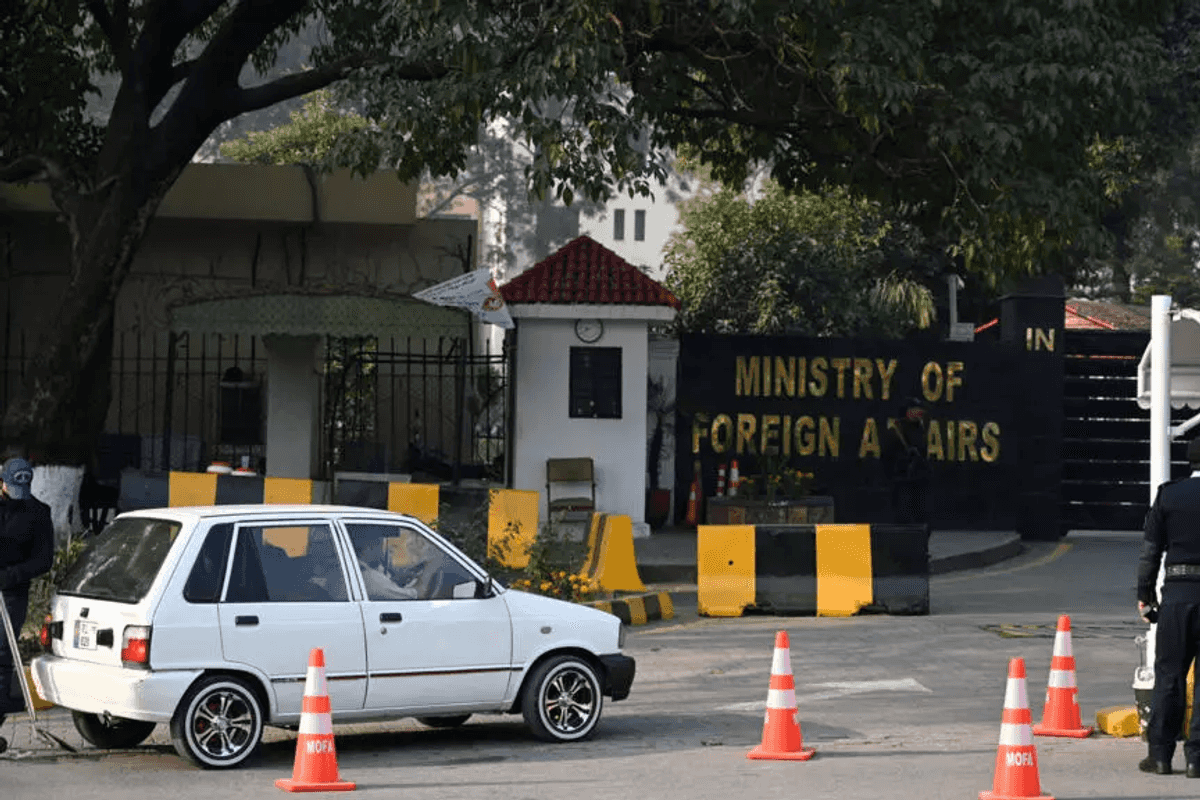Pakistan denies links to Kashmir attack after US terror designation of militant group
Foreign Office accuses India of misusing such designations to advance anti-Pakistan propaganda
News Desk
The News Desk provides timely and factual coverage of national and international events, with an emphasis on accuracy and clarity.

Pakistan on Friday rejected any connection between the April attack in Indian-administered Kashmir’s Pahalgam region and the outlawed Lashkar-e-Taiba (LeT), calling such claims inconsistent with “ground realities.”
Islamabad maintained that it has comprehensively dismantled the group in question, prosecuted its leadership, and deradicalized its members. It further added that the investigation into the Pahalgam attack remains “inconclusive.”
The clarification came a day after the United States officially designated The Resistance Front (TRF) -- the group initially linked to the attack -- as a Foreign Terrorist Organization (FTO) and a “Specially Designated Global Terrorist.” The move was announced by U.S. Secretary of State Marco Rubio, who said it reinforced President Donald Trump’s "call for justice for the Pahalgam attack."
The Resistance Front, also known as the Kashmir Resistance, had initially claimed responsibility for the April assault, which killed 26 people. However, the group later retracted its statement.
The U.S. believes TRF, which emerged in 2019, operates as a “front and proxy” for Lashkar-e-Taiba, a Pakistan-based group accused of orchestrating several attacks in India, including the 2008 Mumbai attacks.
India welcomed the U.S. designation. Foreign Minister Subrahmanyam Jaishankar described it as a “strong affirmation of India-US counterterrorism cooperation” in a statement posted on social media platform X.
'Pakistan has zero tolerance for terrorism'
In response, Pakistan's Foreign Office emphasized that LeT remains a banned organization in the country, and its founder Hafiz Saeed is currently in prison. “Pakistan condemns terrorism in all its forms and manifestations,” the statement read, asserting that Islamabad maintains a policy of zero tolerance for terrorism and supports international cooperation to counter the threat.
“Pakistan has been and continues to be a frontline state in the fight against terrorism,” the Foreign Office added, highlighting the country's contribution to global counterterrorism efforts, including the arrest of Sharifullah -- the alleged mastermind of the deadly Abbey Gate bombing in Kabul.
While acknowledging that the U.S. designation pertains to its domestic legal framework, the Foreign Office warned that India has “a track record of exploiting such designations to push anti-Pakistan propaganda.”
It accused New Delhi of using such moves to deflect international attention from its own “irresponsible and rogue behavior,” particularly ongoing human rights violations in "Indian Illegally Occupied Jammu & Kashmir (IIOJK)".
Underscoring its sacrifices in the fight against extremism, Pakistan called on the international community to adopt “objective and non-discriminatory” approaches in addressing global terrorism.
The statement urged that entities like the Majeed Brigade be similarly designated, describing it as an alias of the banned Balochistan Liberation Army (BLA), which Pakistan holds responsible for various attacks.
The April attack intensified tensions between the nuclear-armed neighbors, as India swiftly blamed Pakistan, a charge Islamabad strongly denied. Pakistan instead called for a neutral, international investigation. While the United States condemned the Pahalgam incident, it stopped short of directly implicating the Pakistani state.







Comments
See what people are discussing